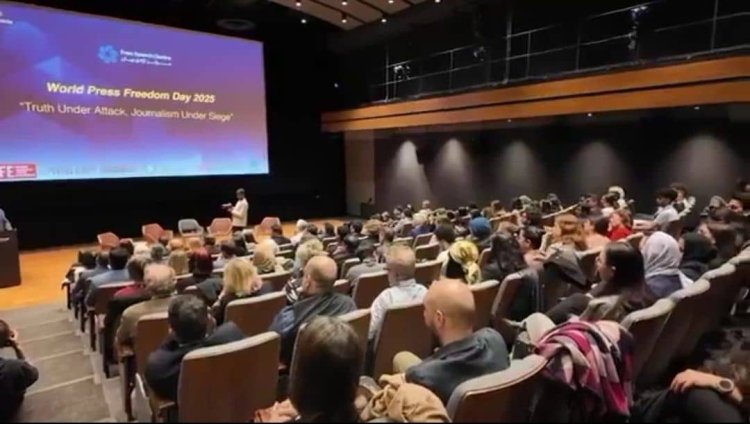Canada’s UN Envoy: Afghan Women Face Gender Apartheid

Bob Rae, Canada’s Ambassador to the United Nations, expressed deep concern over the condition of women and girls in Taliban-controlled Afghanistan, calling it a case of gender apartheid.
Speaking at the World Press Freedom Day conference in Toronto, he said: “The voices of Afghan women have been silenced and severely repressed. In a place where women are not allowed to go out, male support also diminishes—and even for visiting a hospital, they must be accompanied by a man.”
Referring to the Taliban's ban on girls’ education beyond grade six, Rae emphasized: “This form of oppression is a systemic discrimination carried out solely based on gender. It is a clear case of injustice that requires a global fight.”
His remarks were part of the annual conference held by the Free Speech Centre, which took place in Toronto to mark World Press Freedom Day. The event was attended by professors from the University of Toronto, George Brown College, and Seneca College, Canadian media officials, several Afghan journalists, and representatives of international media support organizations.
The main focus of the conference was on examining the state of freedom of expression in Taliban-ruled Afghanistan, as well as the challenges of journalism in democratic societies.
The event included two expert panels titled “Truth in the Age of Repression” and “From Headlines to Silence: The Struggle for Journalism in Afghanistan,” where media professionals and academics discussed the conditions of journalists under repressive regimes and professional opportunities in free societies.
In its final statement, the Free Speech Centre declared 2024 the deadliest year for journalists in the past five decades, with at least 124 journalists killed in 18 countries.
Najib Asil, head of the Free Speech Centre, described the media landscape in Afghanistan after the Taliban’s return as critical. He said that due to political pressure and economic crisis, Afghan media outlets are on the brink of collapse. He called on the Canadian government and media support organizations to expand their support for Afghan journalists—especially those facing serious risks in Iran, Pakistan, and Turkey.
